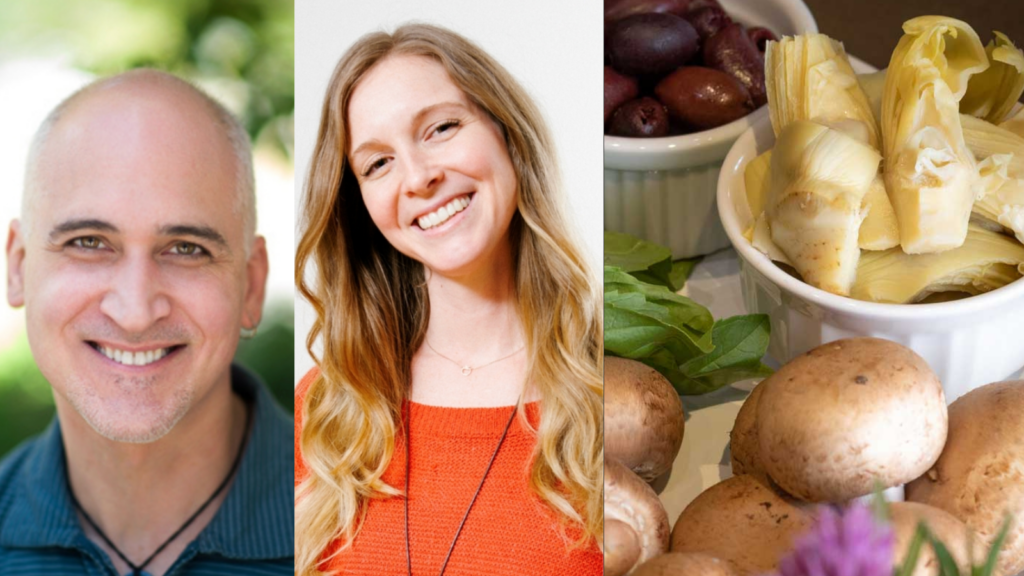Wellness coach Ian Rubin and alumna Caroline Hinchliff help participants achieve lasting results for clients struggling to maintain goals.

Kicking off in October, the National University of Natural Medicine (NUNM) is set to host the Food Story Coaching® Training Program to teach health practitioners how to dive deeper with clients to create lasting changes around food and nutrition.
Teaching the two-month-long series are wellness coach Ian Rubin, founder of Food Story Coaching®, and NUNM alumna Caroline Hinchliff, a program mentor. The duo’s goal is to train participants in advanced techniques that reveal the “food story” behind the individuals they coach.
In learning how to have more profound discussions with patients around diet and nutrition, practitioners can uncover each client’s food story—the unique internal narrative that often determines how someone thinks about and relates to food.
Insight into the underlying emotions and beliefs that influence behavior can help practitioners lead with collaborative support and develop a customized approach for each client to wield permanent results.
Registration is now open for the program, which will run in eight sessions on Tuesdays from 6 – 8:30 p.m., from October 1 through November 19. It will include hands-on mentorship through lectures, coaching demos, Q&A discussions and skill-specific practice sessions.
While the program is primarily geared toward naturopaths and nutritionists interested in obtaining applied knowledge and coaching skills, Rubin said it can be beneficial to anyone talking about food with their clients, such as personal trainers, functional medicine doctors, and even health coaches.
Rubin, an adjunct faculty member in NUNM’s nutrition program, said the premise of the curriculum is meant to explore the intersection of personal, social, psycho-spiritual, and anthropological forces that impact daily food choices so practitioners can see continued improvement in client health outcomes.
“If your patients are telling you they’re tired of dieting and sick of ‘good’ food and ‘bad’ food,” Rubin said, “you’ve got to go to a deeper place with them to understand their complex relationship with food, which is driven by both personal experience and cultural forces.”
Program participants can become proficient in adopting an “empowerment first” rather than an “education first” approach that goes beyond providing evidence-based nutritional knowledge.
While it’s still important to share that expertise, Rubin said the program can train them to shift the narrative so patients can be objective about their motivational factors and avoid feeling shame or guilt around setbacks.
Once patients begin to unlock what’s truly behind their food story, they can feel both empowered and inspired to overcome ongoing roadblocks and more readily meet nutritional goals, he said.
“We can actually be the author of our own story—we can edit it, rewrite it and reinterpret it,” Rubin said. “We can frankly ignore parts of it once we realize this was not my story, somebody gave me that story—my mom, dad, friends, society, culture, experience—and I don’t want to live into that anymore.”
Although it may be challenging for health professionals to view nutrition coaching from an entirely new lens, Rubin said the program’s experiential learning design is meant to encourage practitioners to build confidence through repeated action.
“Until they actually get their hands dirty and do it—practice imperfectly, mess it up—they never get as good as they would otherwise,” he said. “So, this program is designed to drop people deeply into the experiential side of the pool and learn by doing it.”
by Ashley Villarreal, Marketing Content Specialist
Editor’s Note: Participants must register in advance for the program, which will run in eight sessions on Tuesdays from 6 – 8:30 p.m., from October 1 through November 19, 2024.